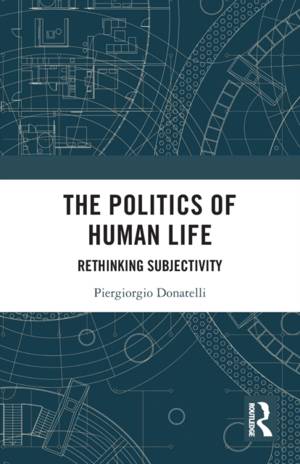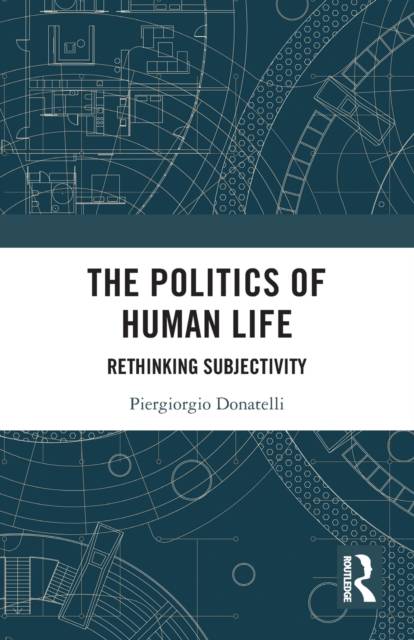
- Retrait gratuit dans votre magasin Club
- 7.000.000 titres dans notre catalogue
- Payer en toute sécurité
- Toujours un magasin près de chez vous
- Retrait gratuit dans votre magasin Club
- 7.000.0000 titres dans notre catalogue
- Payer en toute sécurité
- Toujours un magasin près de chez vous
Description
This book centres on the notion of human life that lies at the foundation of contemporary thinking in the areas of ethics, law and politics.
Centrally, the book addresses the deep divide, characteristic of this thinking, between: on the one hand, those who wish to do away with any anthropological understandings of the human, and appeal to mere facts delivered by science; and, on the other hand, critics who defend an anthropological understanding of human life that is tied to traditional, teleological, metaphysics. In short: knowledge of the world is given over to the sciences and moral theory is considered to operate in a distinct, and insulated, domain. But this opposition has, Piergiorgio Donatelli argues here, outlived its usefulness. Through a discussion of the intimate human spheres of reproduction, dying and sexuality, he argues that we now live in a world characterized by new ways of living: by novel rearrangements of emotions, and by the modification, and in some cases a radical rupture in, existing ideas of human life. These shifts challenge any established separation between facts and norms, between human life and its conceptualization. As such, it is argued here, they simultaneously offer the possibility of a new, socially articulated, understanding of the relationship between subjectivity and normativity.
Engaging pressing contemporary themes, this book will be invaluable to scholars in the fields of ethics, law and political theory, and both analytic and continental philosophy.
Spécifications
Parties prenantes
- Auteur(s) :
- Editeur:
Contenu
- Nombre de pages :
- 118
- Langue:
- Anglais
Caractéristiques
- EAN:
- 9781032020884
- Date de parution :
- 01-11-22
- Format:
- Livre broché
- Format numérique:
- Trade paperback (VS)
- Dimensions :
- 140 mm x 216 mm
- Poids :
- 154 g

Les avis
Nous publions uniquement les avis qui respectent les conditions requises. Consultez nos conditions pour les avis.






